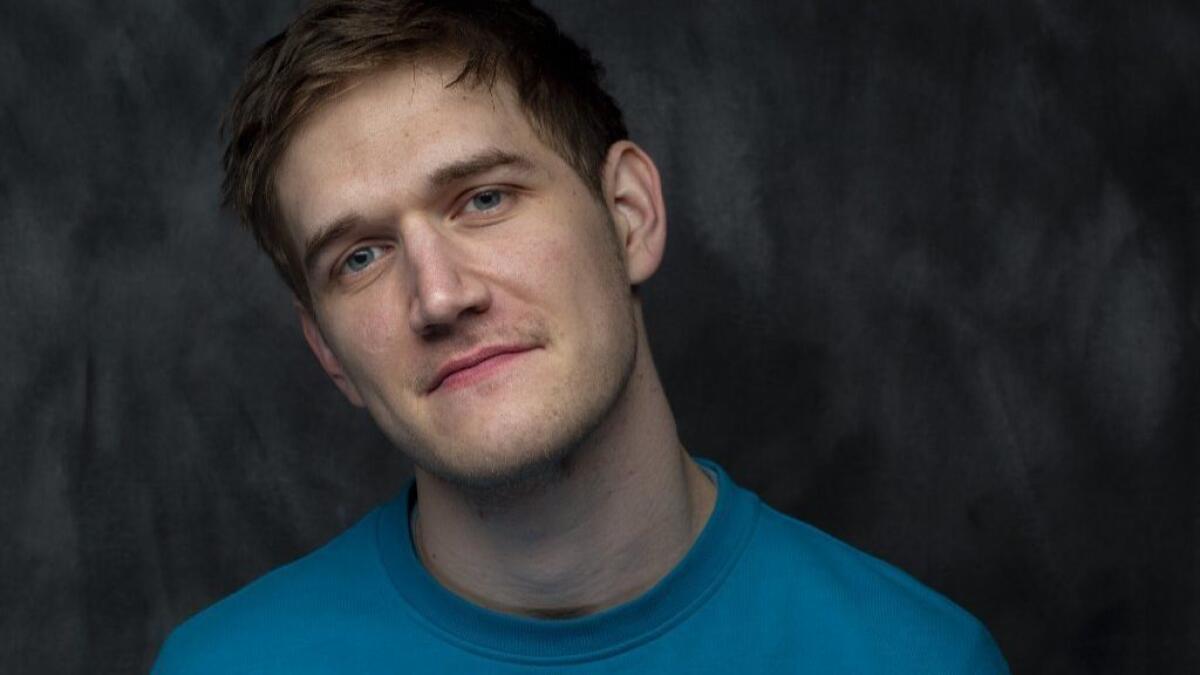Writing ‘Eighth Grade’ as a tribute to young people — and all their uncertainty

- Share via
There are a lot of videos on YouTube — like, a lot — like 300-hours-of-video-uploaded-every-minute a lot. Almost all of these videos go unwatched, a lucky few will be barely watched, and an insanely small percentage will go viral. We tend to only talk about the last. But the vast majority of the internet is full of people expressing themselves to virtually no one.
I wrote “Eighth Grade” as a tribute to the young people I was seeing online that no one was paying attention to. Teens, mostly girls, soliloquizing in their bedrooms for 10 minutes at a time, staring straight into their laptop’s built-in webcam. Thousands of videos with titles like “How to Make New Friends in Middle School” or “Life Advice #54” or “Being 13 Years Old: The Dos and Don’ts.” Real kids posting videos that no one was watching — unseen, unprocessed, unadulterated by a built-in audience, desperate to express and define themselves in real time for an audience that may not be there. These vlogs (video blogs for the unfamiliar) fascinated me. They existed in startling contrast to the clean, controlled teen voice that I’d seen represented in media.
And yet that exact controlled voice was what these kids were clearly emulating. The young people in these videos were trying so desperately to sound like the young characters they’d seen in movies and television — characters that are able, in their film’s opening or closing moments, to fully articulate their own narrative, to give a charming, whip-smart, tear-jerking, emotionally resonant, well-articulated and, above all else, interesting monologue about Their Life.
But these young vloggers couldn’t do that. They were kids. They weren’t professional screenwriters. They stumbled and stuttered and lost their train of thought and backtracked and repeated themselves. In their vlogs, these kids were embodying the very truth that I as a writer am often desperate to deny: that our words fail us. They fail us brutally. The gap between the experience in our head and the articulation of that experience in our words is vast and disappointing.
And these kids wrestling with that gap and failing to close it, failing to articulate their own lives was, to me, as beautiful and vivid a description of what it means to be alive today as anything I’d come across. These kids in these videos were somehow, all at once: personal, generic, public, private, confessional, conciliatory, clearly lying and yet deeply honest.
So I began transcribing these videos. Trying to capture the stutter, mumbly, staccato way that these kids spoke, backpedaled, stumbled. Yeah, well, um, so the thing about that is that it’s, um, not really THAT bad, actually or—wait, sorry, hold on. Eventually, I started writing an original voice. That was Kayla, the main character of “Eighth Grade.” The script would then explore the question I had been asking since the beginning: What was the life being lived outside of these videos? How was it different? How was it similar? I knew both answers would be meaningful to me.
The process of actually making the film was trying to preserve the authenticity of the voices I had become fascinated with — to prioritize that specific brand of inarticulation that is so particular to that age. So it meant casting actual 13-year-olds and empowering them to be comfortable to fail on camera.
When Elsie Fisher walked in for her audition, she was incredibly nervous — as any sane kid would be walking into such a high-stress situation. She sat down on the lone folding chair in front of the camera with her sides [lines] in her lap. The first scene was the opening monologue of the movie, Kayla’s vlog about Being Yourself. Elsie looked right into camera and said,
“Hey guys!” throwing her hand up, knocking her sides off her lap and onto the ground. She turned beet red.
“Oh, my gosh, I’m so sorry, ugh, I’m an idiot.”
I interrupted, too excited, “Nonono! It’s perfect!”
More to Read
Sign up for The Envelope
Get exclusive awards season news, in-depth interviews and columnist Glenn Whipp’s must-read analysis straight to your inbox.
You may occasionally receive promotional content from the Los Angeles Times.










